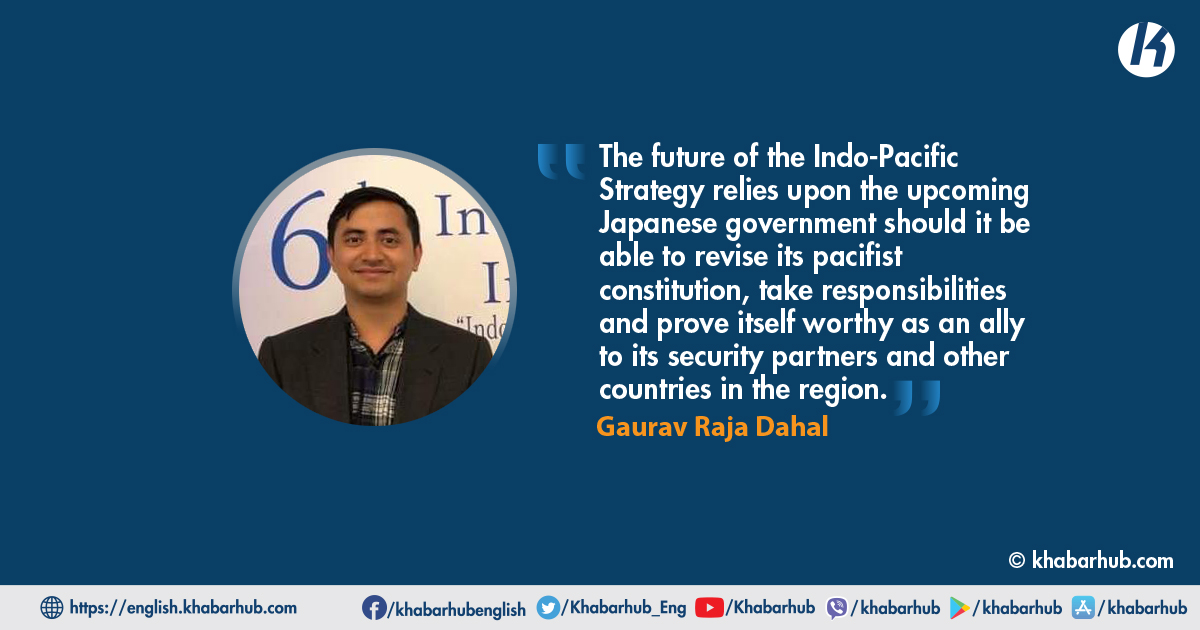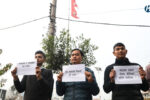In the early days of post-World War II, Japan endured problems of utmost inflation and poverty. This led to the rise and expansion of the leftist parties across the country.
With neighbors like China going through the Chinese revolution alongside the rise of the Soviet Union and the approaching war between the two Korean nations, Japan was surrounded by an imminent threat in the international arena.
Hence, amid Japan’s devastating economy, a spillover effect was highly likely from its neighbors. Under these circumstances, the Yoshida Doctrine adopted by the government of Japan under Prime Minister Yoshida gave priority to the economic recovery instead of military rearmament of battered Japan for its development while relying upon the security through the Japan-US alliance.
Postwar Japanese diplomacy adhering to the Yoshida doctrine
Article 9 of the Japanese Constitution states that “the Japanese people forever renounced war as a sovereign right of the nation” and the military forces “will never be maintained”, with that Japan completely relied on the military capabilities of the United States Security forces for its national security.
Due to this reliance, the United States pursued Japan to increase its military expenditure; however, PM Yoshida turned down these requests categorically and consistently based on Japan’s pacifist post-war constitution.
Instead, he focused on all available means for the economic recovery of Japan. Due to this reason Japan experienced rapid and miraculous economic recovery and had become the second-largest economy in the world.
As a reaction to the security threats in the region, PM Shinzo Abe had pledged to revise Japan’s Pacifist constitution forming a new defense strategy enabling Japan to safeguard its interest against these threats in the region.
After WWII, due to the destruction and the lives lost, there was an emergence of anti-war sentiments among most of the Japanese people.
Japan lost its face in front of the international community but most importantly among its neighbors (other smaller Asian countries as well as China) because of its harsh behavior during the war.
Japan understood that after the war these Asian countries will always be concerned about Japan’s remilitarization and it won’t be able to develop any good relations among its neighbors, rather their relations will be filled with mistrust and skepticism.
Rising China and dwindling US’s security commitment in the region
But in recent times, with the rise in China as the world’s economic and military giant surpassing the rule-based international order and altering the status quo in the disputed territories and provocations of North Korea with its nuclear testing and procurement, it is clear that Japan has to be able to defend its interest in the region when the time comes.
Especially now, when the US itself is struggling to secure its position as the world superpower both economically and militarily, Japan cannot rely firmly upon the American security umbrella anymore because these current geostrategic realities are different from the events these two allies confronted during the cold war era.
The future of the Indo-Pacific Strategy relies upon the upcoming Japanese government should it be able to revise its pacifist constitution, take responsibilities and prove itself worthy as an ally to its security partners and other countries in the region.
ASEAN also plays an important role in the region which consists of developing nations with diverse national interests.
It has been well established that these countries have separate expectations from Japan. It is also true that these countries are slowly losing their trust in the commitments made by Japan and are adrift towards China despite China’s assertive construction and militarization of artificial islands in the South-China Sea, claims on Taiwan straits, claims on Senkaku Islands challenging the rule-based world order and internationally accepted maritime rules.
As a reaction to the security threats in the region, PM Shinzo Abe had pledged to revise Japan’s Pacifist constitution forming a new defense strategy enabling Japan to safeguard its interest against these threats in the region.
He also succeeded in building a strong alliance with the member of the QUAD-the US, India, and Australia-for the containment of rising China.
Similarly, Prime Minister Suga’s one-year tenure was marred by a devastating pandemic response and rapidly dwindling public support according to the polls.
With Prime Minister Suga stepping down from his post, the race is on for the post of next Prime Minister. The main focus of the upcoming PM should be to foster the relationship among its security partners and promoting multilateralism with other countries in the Indo-Pacific Region.
The doctrine has been the centerpiece of Japanese foreign policy when it comes to the issues related to preserving Japan’s national security.
Due to the lack of military power, this doctrine has curtailed the ability of Japan’s government to alter the basic course of its foreign policy and security options, especially regarding its Indo-pacific strategy, when China has been considered as an imminent threat to its’s interest in the region and the threat to the rules-based global order as a whole.
The future of the Indo-Pacific Strategy relies upon the upcoming Japanese government should it be able to revise its pacifist constitution, take responsibilities and prove itself worthy as an ally to its security partners and other countries in the region.
(Gaurav Raja Dahal has graduated in International Peace Studies at the International University of Japan in 2019. His areas of interest include politics and economics. He is currently involved as a researcher in Nepal Institute for International Cooperation and Engagement (NIICE).









Comment